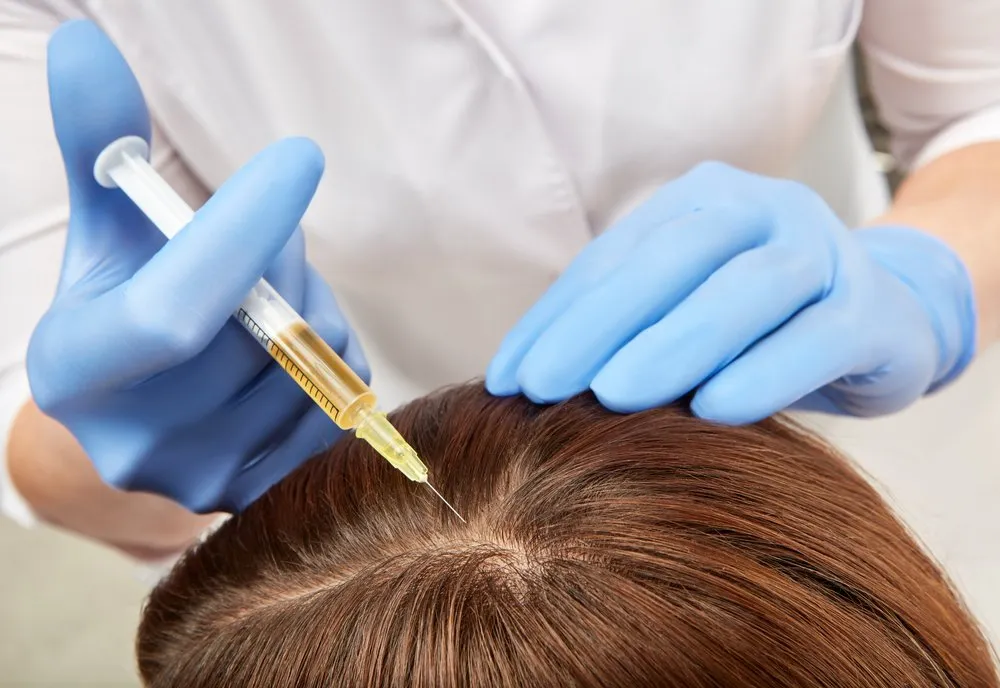Summary
Can Ginkgo Biloba Help with Hair Loss? Ginkgo biloba is a natural remedy gaining popularity for supporting hair health and preventing hair loss. It may improve scalp circulation, reduce inflammation, and protect hair follicles with its antioxidant properties.
While research is ongoing, ginkgo for hair loss shows promise as a complementary treatment. Always consult a healthcare provider before starting any new supplement.
Introduction
Are you looking for natural remedies to help with hair loss? One supplement that has gained attention for its potential to support hair health is ginkgo biloba. This centuries-old herb is believed to improve blood circulation, reduce inflammation, and protect hair follicles from damage.
In this article, we will explore whether ginkgo for hair loss is an effective solution. By the end, you will understand how it works, the scientific evidence behind its use, and how you can incorporate it into your hair care routine.
What Is Ginkgo Biloba?

Ginkgo biloba is a powerful herbal supplement that originates from the ginkgo tree, which has been around for millions of years. Known for its distinctive fan-shaped leaves, ginkgo biloba contains potent compounds like flavonoids and terpenoids, which have antioxidant and anti-inflammatory effects. Traditionally, it has been used to improve cognitive function and blood circulation.
In recent years, ginkgo biloba has gained popularity in the world of hair care. Its unique properties are believed to help improve scalp health, encourage hair growth, and prevent hair loss.
How Ginkgo Biloba May Support Hair Health
1. Improved Scalp Circulation
One of the most important benefits of ginkgo biloba is its ability to enhance blood circulation. Improved blood flow means that your hair follicles receive more oxygen and nutrients, essential for healthy hair growth. This may be especially beneficial for people whose hair loss is related to poor circulation.
2. Antioxidant Properties
Ginkgo biloba is rich in antioxidants, which help combat oxidative stress caused by free radicals. Free radicals can damage hair follicles, contributing to hair loss. By neutralizing these harmful molecules, ginkgo can help protect hair follicles and promote stronger, healthier hair.
3. Anti-Inflammatory Effects
Inflammation is a common cause of hair loss, especially in conditions like alopecia. Ginkgo biloba’s anti-inflammatory properties can help reduce inflammation in the scalp, promoting a healthier environment for hair to grow. By reducing inflammation, ginkgo may help prevent further hair damage and loss.
4. Potential DHT Inhibition
Dihydrotestosterone (DHT) is a hormone linked to male and female pattern baldness. Some studies suggest that ginkgo biloba may influence DHT production, possibly preventing the miniaturization of hair follicles associated with hair loss. Although research in this area is still ongoing, ginkgo’s potential DHT-reducing effects may contribute to healthier hair growth.
Scientific Evidence Supporting Ginkgo for Hair Growth
Animal Studies
Research on ginkgo biloba’s effects on hair growth in animals has yielded promising results. In a study conducted on rats, ginkgo extracts were found to stimulate hair regrowth, supporting the notion that ginkgo may promote hair health. However, further studies in humans are needed to confirm these findings.
Human Observations
While there are several anecdotal reports and small studies that suggest ginkgo biloba can help with hair growth, more robust clinical trials are necessary to validate these claims. A few studies have shown that participants using ginkgo biloba saw improvements in hair thickness and density, but results can vary from person to person.
How to Use Ginkgo Biloba for Hair Loss
Oral Supplements
The most common way to consume ginkgo biloba for hair loss is through oral supplements. Capsules or tablets are widely available, and many hair care professionals recommend taking 120 to 240 mg of ginkgo biloba daily, divided into two doses. However, it is important to consult with a healthcare provider to determine the right dosage for your needs.
Topical Applications
In addition to oral supplements, ginkgo biloba can also be found in shampoos, serums, and oils. Applying these products directly to the scalp can help target areas of hair thinning or loss. Ginkgo extracts in these products are believed to improve circulation and provide antioxidant protection to hair follicles.
Combination Approaches
For the best results, some individuals choose to combine both oral supplements and topical applications of ginkgo biloba. This holistic approach may provide better benefits by working internally and externally to support hair growth.
Safety and Side Effects of Ginkgo Biloba
While ginkgo biloba is generally considered safe, it is important to be aware of potential side effects. Some individuals may experience mild symptoms such as headaches, dizziness, or stomach discomfort. More serious risks include an increased likelihood of bleeding, especially for individuals taking blood thinners like warfarin.
Precautions:
- Pregnancy and Breastfeeding: Ginkgo should be avoided during pregnancy or while breastfeeding due to insufficient research on its safety in these circumstances.
- Medical Conditions: If you have a bleeding disorder, take blood thinners, or have any other medical condition, consult a healthcare provider before using ginkgo biloba.
Managing Expectations and Results Timeline
Initial Effects
If you are considering ginkgo biloba for hair loss, it’s important to manage your expectations. Some users report seeing minor improvements in hair thickness and growth within 3 to 6 months of consistent use. However, the timeline for noticeable results can vary significantly.
Long-Term Benefits
For long-term benefits, it may take up to a year or more to fully observe the effects of ginkgo biloba on hair growth. Patience is key when using natural supplements, and it is crucial to maintain a consistent routine.
Complementary Practices
In addition to using ginkgo biloba, maintaining a healthy diet, managing stress levels, and practicing proper hair care techniques can further enhance your results. Combining ginkgo with other treatments, such as topical minoxidil or PRP (platelet-rich plasma) therapy, may also yield better outcomes.

Frequently Asked Questions (FAQs)
Can ginkgo biloba reverse hair loss completely?
While ginkgo may help improve hair health and prevent further loss, it is unlikely to reverse advanced hair loss completely. It works best as part of a comprehensive hair care routine.
How long should I use ginkgo biloba for hair loss?
Consistent use for at least 3 to 6 months is recommended to see noticeable results. However, individual experiences may vary.
Are there any side effects of using ginkgo biloba for hair loss?
Most side effects are mild and may include headaches or stomach upset. However, ginkgo can increase the risk of bleeding, so individuals on blood thinners should avoid it.
Conclusion
Ginkgo biloba offers potential benefits for those experiencing hair loss, especially for individuals seeking natural remedies. Its ability to improve circulation, reduce inflammation, and protect hair follicles makes it a promising option. While more research is needed to confirm its efficacy, ginkgo can be a helpful addition to your hair care routine. Always consult a healthcare provider before starting any new treatment to ensure it’s appropriate for your individual needs.
If you’re looking for personalized advice on using ginkgo biloba for hair loss, book a consultation with Dr. Rana Irfan today. Discover the best treatment plan tailored to your specific needs and start your journey toward healthier hair!
